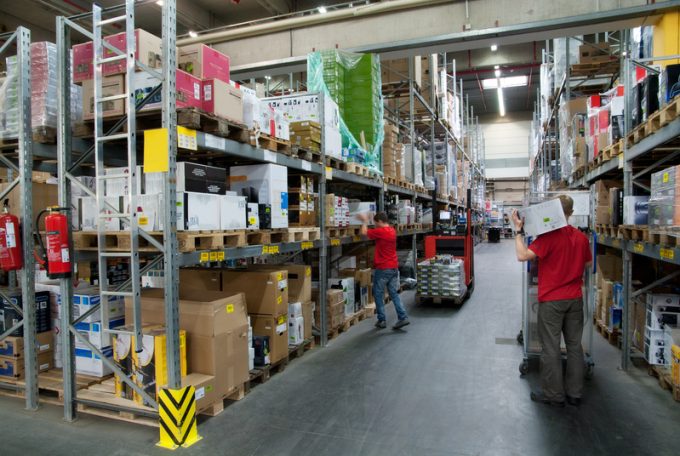Cooling demand increases warehousing vacancies, with rents inching down
Cooling demand has ended the long run of increasing warehousing costs and nudged the average ...

You may be forgiven for believing you’re living in a parallel universe, when new research by Descartes shows a serious shortage of supply chain workers, while logistics providers are shedding employees by the thousands.
Headlines in recent industry publications have indicated a parade of news of job cuts as logistics providers struggle to adjust to a market characterised by slow demand and escalating costs.
To pick out just two examples: UPS announced at the end of January it was axing 12,000 jobs this year; next day, news broke of Flexport planning to say goodbye to about 15% of its workforce.
UPS had already trimmed its headcount from 540,000, in December 2022, to 495,000, while for Flexport, this marked the third round of job cuts, following last year’s two rounds, each of about 20% losses in the workforce.
The current job cull at UPS targets staff in managerial positions and people on contract, but some observers reckon this could be a prelude for another round affecting the integrator’s unionised blue collar contingent.
And FedEx, which went through several rounds of job cuts last year, starting with a 10% reduction of its officers and directors, is looking to trim its flight crews by up to 400 this year.
Large lay-offs have also been predicted for the warehousing sector, as the scramble for capacity has lost steam. The US warehouse vacancy rate averaged 4.1% in the second quarter of last year and is expected to grow to 5.2% through this year, according to commercial real estate firm Cushman & Wakefield.
However, a study by software solutions provider Descartes of 1,000 executives in logistics and supply chain management positions paints a radically different picture. It shows 76% of supply chain executives are facing labour shortages, with 37% describing the shortfall as “high to extreme”.
Only 5% of respondents reported no labour shortage, while 19% described their shortage as ‘little’ and 40% reported ‘some shortage’.
Companies in Germany, the US and the Nordic countries are most affected by labour shortages, Descartes observed.
The respondents’ logistics providers were also struggling with labour shortages. Only 9% saw no impact on their logistics partners’ performance, while 24% said their providers were ‘very impacted’ and 12% found their providers ‘extremely impacted’.
The biggest hit was in transport operations (61%), followed by warehouse operations (56%), transport planning (51%) and customer service (42%).
The study indicates correlations between labour shortage and financial performance, and in the impact of labour shortage and top management’s attitude to supply chain and logistics.
While 74% of companies with relatively low employee turnover described their financial results as above average or industry-leading, only 24% of those with relatively high staff turnover saw themselves in this bracket.
“Better financial performance comes from supply chain and logistics operations that are more stable, and where the workforce has accumulated deep domain expertise,” concluded Descartes’ analysts.
Of the companies where management view supply chain and logistics as ‘a necessary evil’, 51% saw a negative impact from labour shortage on performance, compared with 29% among companies where the c-suite sees supply chain as a competitive weapon.
When it came to filling vacancies, 32% of respondents said it was not hard to replace warehouse workers; most challenging to recruit were planners and analysts, said 55%, closely followed by managers, at 54%.
Helmut Berchtold, head of the US arm of logistics recruitment specialist adi Consult, was not surprised by the findings. While companies had been quick to trim warehouse and delivery personnel to bring staffing in line with slowing demand, the quest for logistics professionals had not eased significantly, he noted. Qualified staff were still not easy to find.
The scramble for experienced people when business was soaring a couple of years ago gave a tremendous lift to remuneration for those professionals, which puts companies in a bind at a time when business slows and costs are escalating. There is an overall drive to rein-in costs, but it would be impossible for companies to reduce salaries, Mr Berchtold explained. Given the difficulties to find replacements, these people seem insulated from the cost-cutting.
“If you worked with a good recruiter, you get more than your money’s worth,” he claimed. “A good recruiter doesn’t just throw some CVs of people that look suitable at you; he understands your company and its culture and looks to find a candidate who fits this.”
Comment on this article